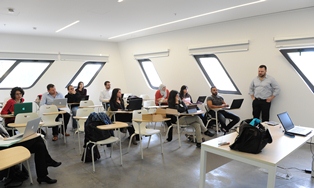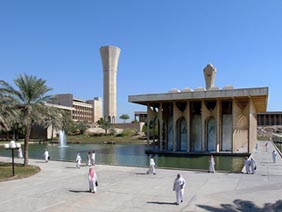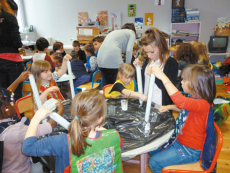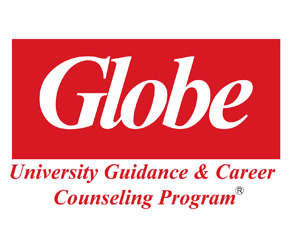AUB's first Digital Humanities Institute brings poets and geeks together
Have you taught a course in Moodle or followed one that was gamified, or developed a computer code to help scholars analyze patterns in literary texts?
Or have you created an infographic or digital map or timeline to explain a historical period or political process?
If you have done any of these, you would have inadvertently experienced aspects of an emerging discipline called “digital humanities,” which uses advanced digital technologies to investigate questions in the humanities.
The discipline of digital humanities is methodological by nature and interdisciplinary in scope. It promotes the use of technology and criticism to form a new kind of literary study that is absolutely comfortable with scientific methods yet completely immersed in the values of the humanities.
The first Digital Humanities Institute at AUB and the region is organized March 2-6 by Associate Professor David Wrisley, of the English Department, with the support of several departments and institutes.
“The humanities in the 21st century have taken a decidedly digital turn,” said Wrisley. “In some cases this means traditional questions are addressed with new digital skills or new modes of scholarly communication, in others, entirely new research questions are emerging with technology. The main goal of the Institute is to create an environment where different stakeholders in the academic communities of Lebanon and the region learn together about new computing technologies and their impact on the humanities.”
The institute, which consists of eight workshops, will train participants in coding, data mining, digital mapping, new digital-based methods in research and publishing, and other skills needed in the digital humanities.
“It is a forum for poets and geeks to meet and exchange knowledge,” said Wrisley. “What we hope to do is to expose humanists to the tools and skills needed to develop programs or other digital skills for the production of research and knowledge in the humanities. Similarly, we would like computer programmers to develop their creative skills in order to employ them in advancing the study of the humanities.”
A 2010 New York Times article argued that while 20th century thought developed many “isms” to explain and chronicle the humanities, data is most likely to be the next big idea in language, history, and the arts.
“Members of a new generation of digitally savvy humanists argue it is time to stop looking for inspiration in the next political or philosophical ‘ism’ and start exploring how technology is changing our understanding of the liberal arts,” noted the NY Times article. “This latest frontier is about method, they say, using powerful technologies and vast stores of digitized materials that previous humanities scholars did not have.”
In fact, the conventional image of a lone humanities professor buried in the musty archives of the campus library poring over yellowed books and documents might well become confined to the annals of history – or at least to a digital database.
That scene has been changed with the advent of digitization, explains Wrisley: The same professor can now conduct his/her research from the comfort of his/her home, via a laptop and a good internet connection.
Not only that, but the professor might also conduct his/her research collaboratively with other researchers whom he/she has never or will ever meet, through the process of crowdsourcing. “The world is full of ‘citizen scholars’ who would love to participate in knowledge growth,” said Wrisley. “Digital humanities has a place for that.”
Furthermore, the research produced by the professor and his/her worldwide colleagues will no longer stay confined in academic journals accessed by similar scholars, but it could sit on a website or in a digital archive accessible by non-academics or academics from far-flung fields and/or geographic locations.
“In other words, because of digitization, the way people interact with and access generated knowledge will be different,” added Wrisley.
Wrisley is very eager to bring the principles and skills behind the digital humanities to the Arab world – a region that has been historically studied but that has rarely produced studies about itself. He notes that AUB is the first to organize an institute on this subject, following in the footsteps of Oxford, Stanford, Leipzig University, and others. Wrisley hopes that he will be able to organize the institute on an annual basis.
“The Arab World Knowledge Report 2014 makes a plea for knowledge to be created from the Arab World, and not only about it,” said Wrisley. “My hope is that the Digital Humanities Institute will invigorate students, faculty and researchers to work together towards such a goal. At AUB we have so much knowledge that is simply not discoverable by the rest of the world. Digital humanities should help push us forward towards discoverability and visibility.”
DHI-Beirut is sponsored by the Arts and Humanities Initiative (AHI), the Faculty of Arts and Sciences Dean’s Office, the Prince Alwaleed Bin Talal Bin Abdulaziz Alsaud Center for American Studies and Research (CASAR), the Center for Arab and Middle Eastern Studies(CAMES), the Departments of Arabic and Near Eastern Languages, Computer Science andEnglish, the Issam Fares Institute for Public Policy and International Affairs (IFI), the Orient Institut – Beirut, the Institut de recherche pour le développement (IRD) and ODySCE/URA CNRS-L.






















